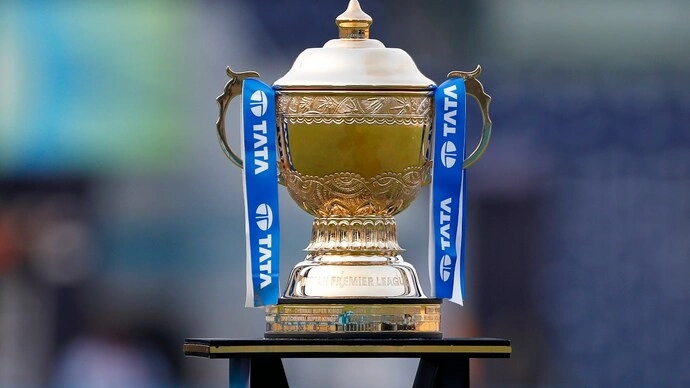The Indian Premier League (IPL 2025) has been postponed due to a sudden increase in military tensions between India and Pakistan, which was prompted by the April 22 terrorist assault in Pahalgam, Jammu & Kashmir. The decision came a day after the Punjab Kings’ match against the Delhi Capitals was called off in Dharamsala owing to air raid alerts in adjacent Jammu and Pathankot.
Spectators were evacuated amid threats of a strike, and IPL chairman Arun Dhumal was seen assisting with the evacuation process on Thursday.
This season, including the postponed game in Dharamsala, 58 games have been played. Twelve league games and four playoff games, including the championship game in Kolkata, were still scheduled to take place at locations including Lucknow, Hyderabad, Ahmedabad, Delhi, Chennai, Bengaluru, Mumbai, and Jaipur at the time of suspension.
Also check:- Yusuf Pathan on Vaibhav Sooryavanshi Breaking His Record: ‘Even More Special… Magical’
The IPL has been interrupted in the middle of a season twice now. Following a COVID-19 bio-bubble breach in 2021, the event was postponed; the second part was subsequently staged in the United Arab Emirates.
The safe return of players and officials to their separate places is the top issue right now because the BCCI has suspended the IPL indefinitely. As early as today, a number of international employees and players are anticipated to leave.
A top BCCI official said, “It does not look nice that cricket goes on while the country is at war.” The rest of the season, which was supposed to end in Kolkata on May 25, is now completely unknown due to the ban.
Although the board has not specified a start date for the competition, an August–September window might be considered. This would jeopardize India’s planned tour of Bangladesh and the Asia Cup, which currently seem dubious due to the ongoing conflict between India and Pakistan and tense diplomatic relations with Bangladesh.
The decision was made in the wake of the terrorist incident in Pahalgam, Jammu & Kashmir, on April 22, which killed 26 people—25 Indians and one Nepali—and escalated tensions between India and Pakistan. India responded by initiating “Operation Sindoor,” which targeted nine terror camps in Pakistan and Pakistan-occupied Kashmir (PoK), including those associated with Lashkar-e-Taiba and Jaish-e-Mohammed.
Pakistan retaliated on May 9 by attacking civilian and military areas in Jammu & Kashmir, Punjab, and Rajasthan with drones, missiles, and artillery fire. India insisted that the strikes did not target military sites, but rather only terror infrastructure. India responded by turning on its air defense systems, which reportedly shot down three Pakistani fighter jets, including an AWACS aircraft, and intercepted numerous threats.
In addition to explosives reported in Rajouri district and along the Jammu-Srinagar Highway, a drone struck the Jammu Civil Airport. A Chinese-supplied air defense system near Lahore was reportedly destroyed by Indian soldiers in a major counterattack on the evening of May 7–8. The Pakistan Cricket Board was forced to move the Pakistan Super League to the United Arab Emirates due to the deteriorating circumstances.


